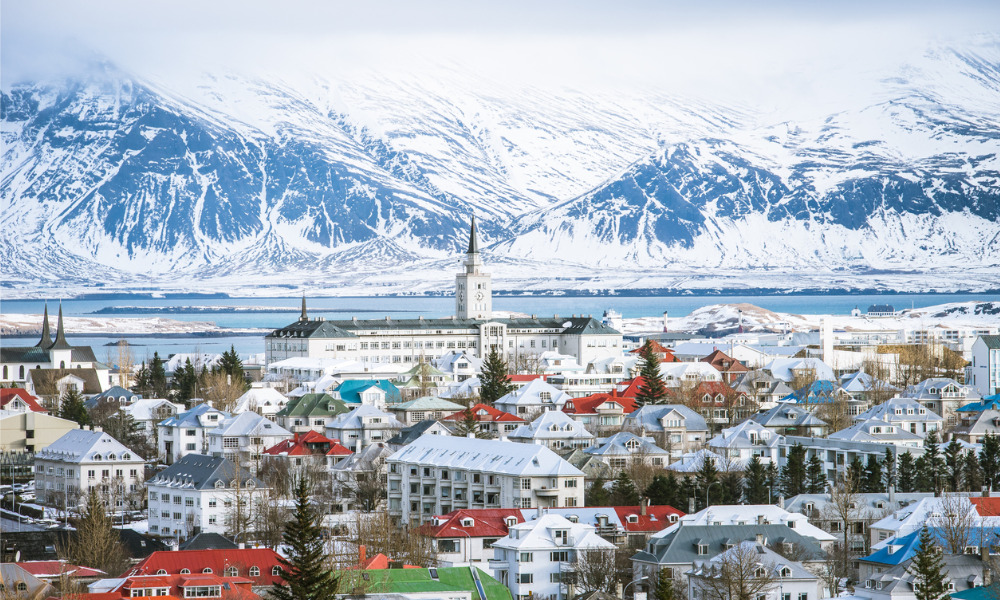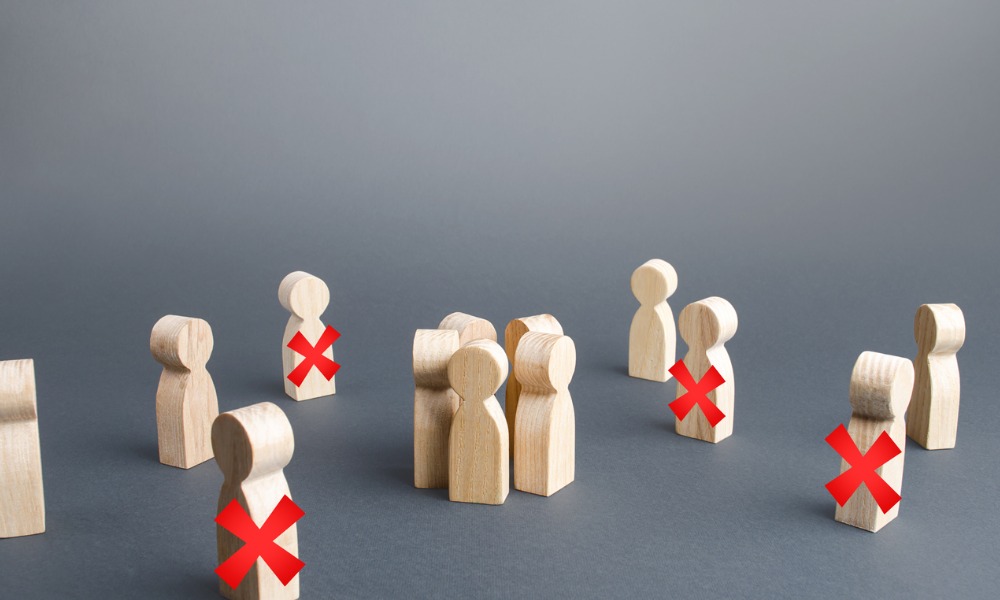Thousands of women across country also push for elimination of gender-based violence

Thousands of women in Iceland, including its prime minister, went on strike on Tuesday to push for equal pay and the elimination of gender-based violence, according to reports.
The Women's Strike in Iceland, which is the seventh of such event since 1975, invited women in the country, including immigrant women and non-binary individuals, to stop work for a full day to "demonstrate the importance of their contribution to society."
"This year, we strike for the whole day, just as women did in 1975. Systemic wage discrimination still affects women, and gender-based violence is a pandemic that must be eradicated. We cannot wait any longer for actions," the organisers of the event said.
PM joins cause for equal pay
Prime Minister Katrín Jakobsdóttir was among the participants of the strike, who previously said she would be showing up to "show solidarity with Icelandic women."
CNN reported that Jakobsdóttir postponed a Cabinet meeting originally scheduled for Tuesday, while all female employees of the prime minister's office also participated the strike.
Tackling the gender-based wage gap
Jakobsdóttir previously told the Iceland Monitor that there are still some ways to go in achieving equal pay for genders.
"As you know, we have not yet reached our goals of full gender equality and we are still tackling the gender-based wage gap, which is unacceptable in 2023," she told the Monitor. "We are still tackling gender-based violence, which has been a priority for my government to tackle."
Other high-profile politicians also expressed their support for the movement, including the country's president.
"Their activism for equality has changed Icelandic society for the better and continues to do so today. #Kvennaverkfall," said President Gudni Johannesson on X, formerly Twitter.
Men in Iceland weren't invited to participate on the day of the strike but are expected to show their support by taking on additional responsibilities at home.
Non-binary individuals were invited, however, as they are also "marginalised by the patriarchy," according to the organisers.
"Their contribution to society is undervalued, and they are much more likely to suffer violence than men," the organisers said.
Employers 'historically' supportive
With the strike affecting many workplaces, the organisers of the event said it will be up to individuals if they want to risk the consequences at work.
"Historically, employers have supported women, or at least not prevented them from participating, on this date," the organisers said on their website. "Employers have plenty of time to organise the work so that women and non-binary people don't have to come to work on 24 October."
Some participants of previous events also informed their employer that they planned on joining, while others ask for leave, according to the organisers.
But if their employer decides to oppose, then it will be up to the participant if they still plan on walking out and risk facing the consequences of such move.
"We invite people to report anonymously the employers who prevent their female and non-binary workers from participating in the strike," the organisers said.
Wage gap 'widening'
The strike comes despite Iceland emerging on top of the World Economic Forum's (WEF) 2023 Global Gender Gap rankings for the 14th time in the row.
"It also continues to be the only country to have closed more than 90% of its gender gap," the WEF said in a statement.
Jakobsdóttir, however, told the Iceland Monitor that the country's wage gap was growing across the state, municipalities, and the general market.
To address the problem, her government launched a project across four different state institutions to look into how women's professions are valued in comparison to traditional men's professions.
"We are looking at how these jobs are different from the average, because we estimate that the difference in wages that exists is due to this," the prime minister told the Iceland Monitor.
Governments across the world are also dealing with the gender pay gap faced by their nation.
In Australia, employers there will be required starting 2024 to publish their gender pay gaps in a bid to further close its lowest-ever gender pay gap of 13.3% on record.
In New Zealand, the previous government there pledged to introduce a new pay gap reporting system for organisations, covering around 900 businesses with over 250 employees.
In the European Union, the EU Parliament voted early this year to ban pay secrecy in a bid to close the gender pay gaps across the region.








